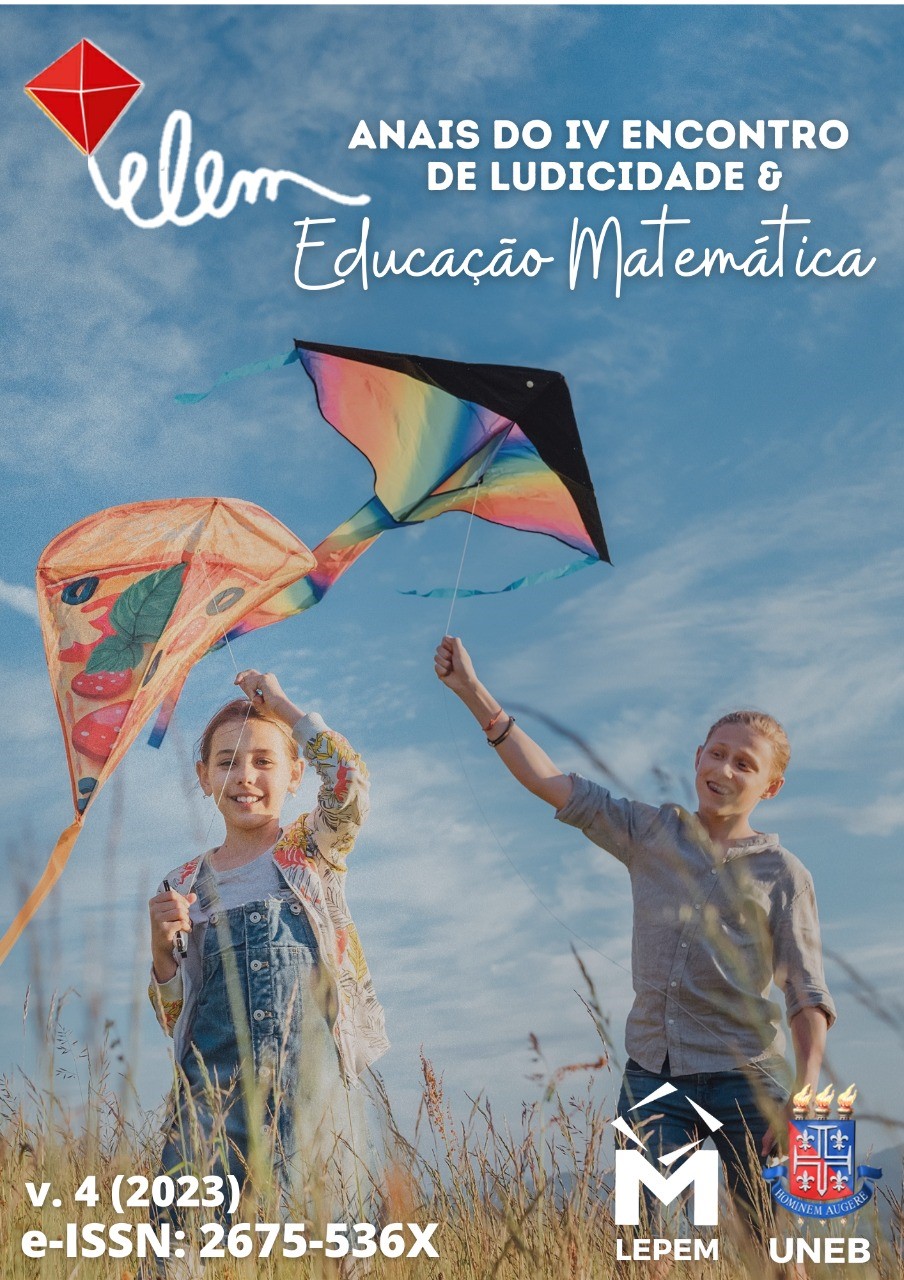MATHEMATICS TEXTBOOK: A LOOK AT THE PLAYFULNESS PRESENT IN BOOKS
Keywords:
Livro Didático. Ludicidade. Matemática.Abstract
I have observed that teachers in the 21st century are still not using the textbook in the classroom and, when it happens, it is inappropriat form, asking students to read, copy and solve questions. In that, the proposal of this study, which is a part of ongoing master’s research, is to investigate the use of mathematics textbooks by educators during their classes, in order to emphasize the ludicity, which the book approaches in favor of students' learning. In this way, the following question arises: How is it possible to captivate teachers to use the textbook through the playfulness addressed in them? To answer this question, a predominantly qualitative documentary research is necessary, in which a questionnaire was proposed to Mathematics teachers in order to understand how the textbook is used in their classes. A questionnaire is also suggested to students with the same purpose. Furthermore, to analyze the ludicity that is in the contents proposed by the textbooks sent to public schools by the PNLD (National Textbook Program). Through this research, an educational product will be structured that can provide support to teachers for the use of the textbook in their mathematics classes.
Downloads
References
BONJORNO. José Roberto; JÚNIOR. José Ruy Giovanni; SOUSA. Paulo Roberto Câmara de. Prisma matemática: geometria: ensino médio: área do conhecimento: matemática e suas tecnologia. a. – 1. ed. – São Paulo: Editora FTD, 2020. ISBN 978-65-5742-024-9 (Aluno). ISBN 978-65-5742-025-6 (Professor).
CAMARGO, Marco Antonio de. Telecurso 2000: uma análise da articulação da matemática escolar e do cotidiano nas tele–aulas (educação de jovens e adultos). In: Anais Terceiro Congresso brasileiro de Etnomatemática. II CBEm, 2008, Rio de Janeiro.
FNDE. PROGRAMAS DO LIVRO. Disponível em: http://www.fnde.gov.br/programas/programas-do-livro/livro-didatico/escolha-pnld-2018.
Acesso em 21 nov.2022
FOUCAULT, Michael. Arqueologia do saber. 7. ed. Rio de Janeiro: Forense Universitária, 2009.
GUEDES, I. C. Por que os professores não utilizam os livros didáticos? Gazeta Valeparaibana [Online] São José dos Campos, 01 mai. 2016. Educação em debate. Disponível em: https://www.icguedes.pro.br/por-que-os-professores-nao-utilizam-os-livros-didaticos/. Acesso em 18 nov. 2022.
JELINEK, Karin Ritter. Jogos nas aulas de Matemática: brincadeira ou aprendizagem? Saarbrücken: Novas Edições Acadêmicas, 2015.
LIMA, Elon L. Exame de Textos: análise de livros de matemática para o ensino médio. Rio de Janeiro: VITAE/IMPA/SBM, 2001.
LOPES, M. Conceição. Ludicidade humana contributos para a busca dos sentidos do humano. Aveiro – Universidade de Aveiro, jun. 2004.
LOPES, Conceição. Design de ludicidade. Revista: Entreideias, Salvador, v. 3, n. 2, p. 25-46, jul./dez. 2014.
LUCKESI, Cipriano. Ludicidade e formação do educador. Revista: entreideias, Salvador, v. 3, n. 2, p. 13-23, jul./dez. 2014
OLIVEIRA, Francisco Wagner Soares; SAMPAIO, Raniele Nogueira. A presença da história da matemática nos livros didáticos do novo ensino médio. Fortaleza - Ceará. 2022. e-ISSN: 2447-8504.
SANTOS, Santa Marli P. (org). A ludicidade como ciência. Petrópolis: Vozes, 2001.
YIN, Robert. Pesquisa qualitativa do início ao fim. Porto Alegre: Penso, 2016.
Downloads
Published
How to Cite
Issue
Section
License
Copyright (c) 2023 Roseli Filomena Werlang, Karin Ritter Jelinek

This work is licensed under a Creative Commons Attribution-NonCommercial-ShareAlike 4.0 International License.
Uma nova publicação de artigo anteriormente publicado nos Anais do Encontro de Ludicidade e Educação Matemática, fica sujeita à expressa menção da precedência de sua publicação neste periódico, seguindo as normas de referência. Autores que publicam nos Anais do ELEM concordam com os seguintes termos:
-
O Conselho Editorial se reserva ao direito de efetuar, nos originais, alterações de ordem normativa, sintática, ortográfica e bibliográfica com vistas a manter o padrão culto da língua, respeitando, porém, o estilo dos autores. As provas finais poderão ou não ser enviadas aos autores.
-
Autores mantém os direitos autorais e concedem à revista o direito de primeira publicação, com o trabalho simultaneamente licenciado sob a Licença Creative Commons Attribution (CC BY-NC-SA).
-
Autores têm autorização para assumir contratos adicionais separadamente, para distribuição não-exclusiva da versão do trabalho publicada nos Anais do ELEM; exemplo: publicar em repositório institucional ou como capítulo de livro, com reconhecimento de autoria e publicação inicial nos Anais do ELEM.
-
Autores têm permissão e são estimulados a publicar e distribuir seu trabalho online — em repositórios institucionais, página pessoal, rede social ou demais sites de divulgação científica.





